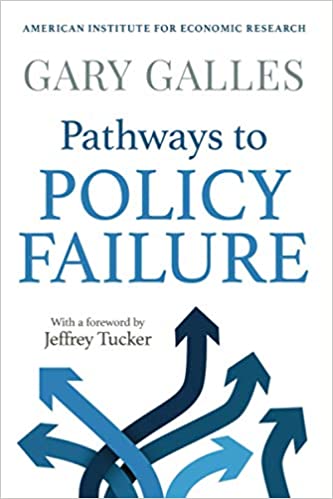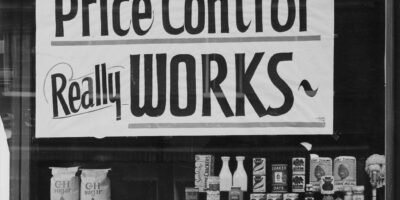Many Pathways to Policy Failure

“Economics must not be relegated to classrooms and statistical offices and must not be left to esoteric circles,” wrote Ludwig von Mises. “It is the philosophy of human life and action and concerns everybody and everything. It is the pith of civilization and of man’s human existence.”
He wrote that in 1949, a time when the world was coming out of the darkest days of the 20th century and seeking a new way. The way forward involved taking economics seriously.
It seems incredible to observe that those dark days are back: protectionism, shutdowns, state management of life, and a renewed push for socialism, the most anti-economic ideology ever conceived.
The country and the entire world is desperately in need of a serious economic education. I don’t mean economics in the form of statistical regressions and confusing models that you find in the top journals. I’m speaking of core principles and how they impact the policies pursued by governments. Such an education is vitally necessary given our times.
Something has gone seriously wrong in the 21st century to the point that it seems like whole societies have forgotten everything we’ve learned about economics in the 20th century. It’s remarkable: we became wealthier than any society in world history and yet too many have no idea why. And for that reason, in 2020, many countries decided to scrap economics altogether.
Those lessons include the failure of socialism, the unworkability of central planning, the impossibility of managing economies through top-down controls, the terrible costs of protectionism, and the reality that every intervention in the market order by government yields unintended and unanticipated consequences that most often negate the point of the intervention. Even after so much evidence on the effectiveness of free markets – the freer they are, the more they serve individuals and the whole of society – people are as confused as ever.
The kind of economics we need right now is that which makes a direct link between logic and policy. And it should speak to every sector of economic life, so that we have a better way of thinking about basic questions. We need tools for understanding whether and to what extent what the politicians and media elites are telling us really do make sense.
The most conspicuous evidence that our societies have lost economic understanding is the year 2020, when most governments in the world imagined that they could turn off the economy like a light switch in order to mitigate disease. Nothing like this has been attempted in recorded history.
Anyone with an economic education could see disaster coming. There is no way an economy characterized by extended supply chains and an infinitely complex division of labor could shut some things off and leave others on while otherwise leaving society undisturbed. The results have created a deeper economic pit than the Great Depression; we could be looking at the rise of hunger, disease, illiteracy, and suffering the world over for many years.
And to what end? Study after study has failed to document any relationship between government controls and an improved health result pertaining to Covid-19. Vast parts of the world panicked and forgot not only the basics of public health but economics in general. There was precious little concern for tradeoffs, opportunity costs, gains from trade, the fragility of wealth, the interconnectedness of economic actors, and the problem of knowledge in the hands of government officials.
All of which means that there is a desperate need for precisely the kind of book that Gary Galles has written (published by AIER). Pathways to Policy Failure not only documents that policy error long precedes Covid lockdowns; he shows precisely why bad economic understanding can lead to an unwarranted trust in politicians and bureaucrats to manage what private actors in society can manage far better. His book covers a huge range of topics, each with a short but compelling essay. I have great admiration for the level of focus and discipline that it requires to write such a book. Underlying it all is the passion of a great economist at work, which is to say someone who is fundamentally motivated by the desire to promote enlightenment so that we can live better and longer lives.
This work should be in the hands (or the ereaders) of an entire generation, so that we can relearn what we once knew and get back to making the world a better place, rather than tearing down what it took centuries to build. There is no such thing as shutting down an economy or ignoring economic principles. Galles has proven that. Further, by documenting the ways in which people mislead themselves down “pathways to policy failure,” he has himself provided the pathway toward regaining the true understanding of economic success.











